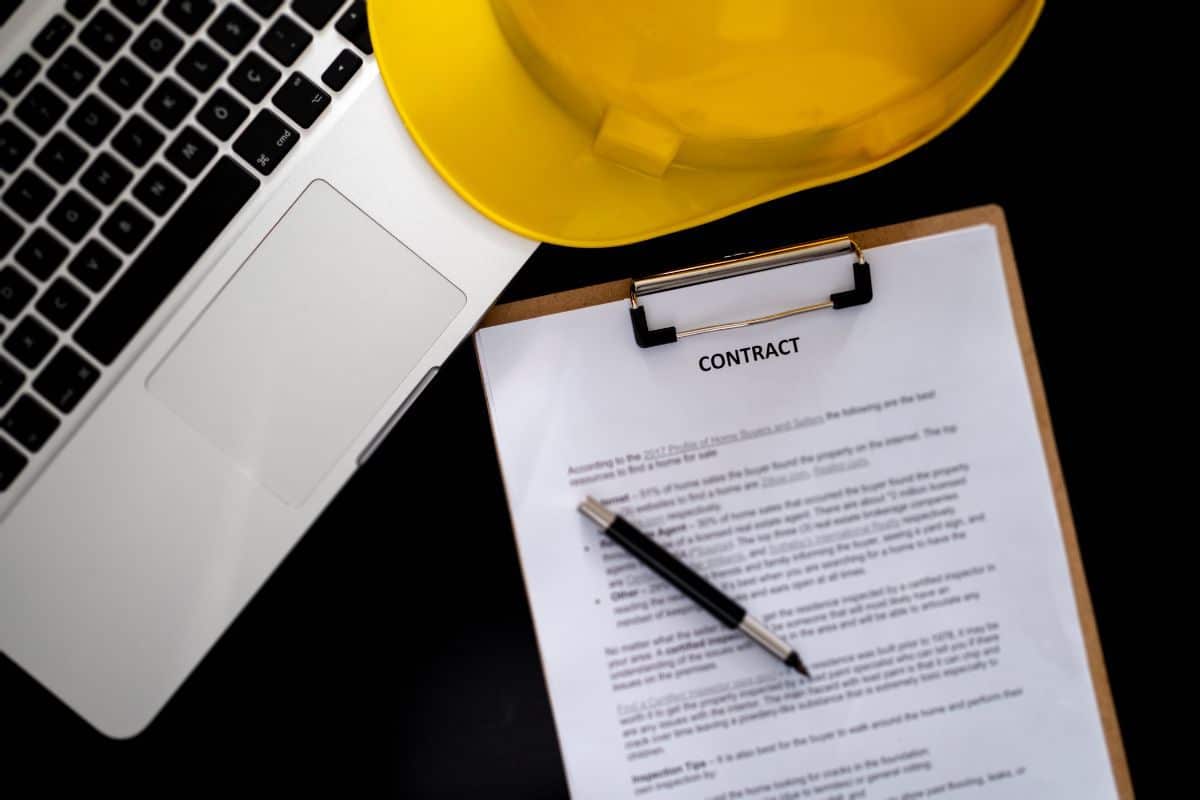Construction contracts have six important elements that you should review before you sign. A construction contract has a legally binding effect, so understanding each part of the contract is important for you and your project. Make sure you take in all the deadlines and requirements of your contract by working with a lawyer. A lawyer can help you prepare or review a construction agreement.
-
Signed Contract Identifying Both Parties
All construction contracts should be written down. Having a written contract avoids disputes over verbal agreements because both parties can easily refer to the contract terms. Trying to remember the terms of a complicated agreement is not a problem when it’s written down.
Moreover, the written construction contract should clearly identify all parties agreeing to it. Each person or company agreeing to be bound by the contract should sign it. You will want to keep a copy of the agreement that includes everyone’s signature in case there is a dispute later.
-
Scope of Work
All construction contracts should identify the scope of work being performed. Since this is the purpose of the contract, explain it in detail. Which tasks will the contractor or subcontractor be expected to perform? What are the core responsibilities of the construction company working on buildings for a purchaser? Each contract you sign should explain which work will be performed.
Sometimes, your contract will need to break down the work into several steps. In that case, you might want to work with a project manager or other professional to ensure that each step is clearly defined, with a schedule and deadlines. That way, you will have guidance from the contract’s terms if there is a delay in the project.
-
Who Has Authority to Make Decisions?
Every construction contract should explain who has the authority to make decisions about the project. For example, sometimes the contractor will have discretion about which materials to use. Other times, the contract may clearly state that the contractor can only use materials of a certain type or grade. The contract may say that any deviations from these materials must be approved by the property owner.
Because construction projects involve many moving parts, defining responsibility and authority in the contract is crucial. Everyone should know who has the final say on major project decisions. Otherwise, conflicts can quickly arise when crucial decisions must be made.
-
Work Schedule
As explained above, many contracts include a work schedule for the various contractors and subcontractors handling a construction project. If there are delays, the contract then explains how the schedule will be adjusted and any remedies for the delay.
With today’s supply chain issues, inflation, and worker shortages, having a realistic work schedule in your contract is even more important. There is a strong likelihood that you might have a delay in project completion. You need to know how you can move forward if your project is delayed. Make sure that you take a careful look at the work schedule before signing a contract.
-
Cost and Payment Info
Every construction contract should include cost and payment information. Keep in mind that unpaid contractors can file mechanic’s liens if they are not paid right away. A contract between a contractor and a construction company should state (1) how much the company will pay the contractor for each part of the work, (2) who will pay for the materials, and (3) when payment will be made. It also should explain who pays if there is a price difference between estimated material costs and actual costs.
-
Remedies
You might need legal help to pursue your remedies under the contract. If you believe that another party to the contract has violated its terms, speak to a construction law firm for advice. Moreover, if you think that you might have to breach a contract term, you also need legal advice. Depending on the contract terms, you could have different remedies. For example, you might be able to substitute different materials if the specified ones are unavailable due to supply chain issues. You might even have the ability to back out of the contract under some limited circumstances. Talk to a construction law firm about your rights today!
Our Houston Construction Contracts Firm Is Here to Help
As an experienced Houston construction law firm, we help our clients find solutions to their contract disputes. We pride ourselves on advice customized to your specific situation. Henke & Williams works with construction clients from all parts of the industry. To set up a consultation, call us at 713-940-4500 or use our convenient Contact Form.


